After watching four more episodes of the new The Twilight Zone. I'm still not impressed. In fact, I'm less impressed than after the first four episodes. And I think I've figured out the four reasons why.
1) "Social Consciousness Storytelling". I keep hearing Rod Serling did a lot of social consciousness storytelling, and allusions to real-life events in the original The Twilight Zone. First of all... he didn't. Okay, he did, but it was relatively rare. And often when he did it, he looked at personal issues rather than societal issues.
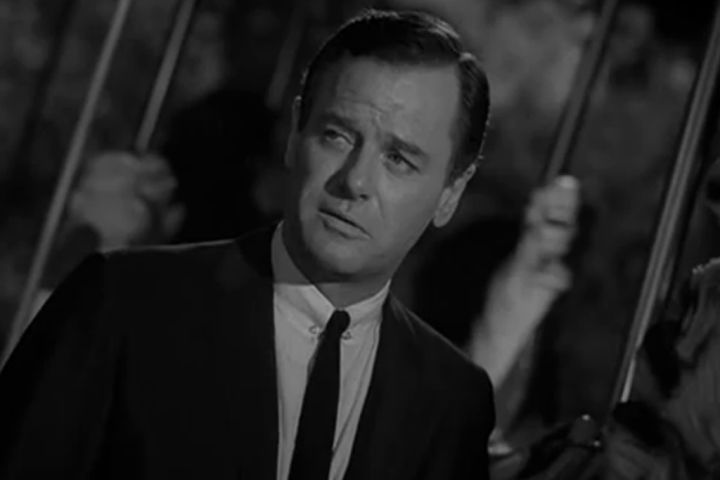
For instance, in "Walking Distance", the episode is about a guy who is depressed about his life and how he's middle-aged and misremembers the past as being a lot more comforting than he thought. It isn't a commentary about how society treats depressed middle-aged men, or false nostalgia. That brings us to number 2.
And when Serling did do it, it often turned up preachy. Check out "I Am the Night - Color Me Black" sometime if you don't believe me.
2) Serling could write characters and make the viewer care about them. They were eccentrics, oddballs, loners, and outsiders. The new Twilight Zone has characters, but they're mostly cookie-cutter stereotypes from central casting. Serling was helped by some incredibly talented actors, like Jack Klugman and Burgess Meredith. No offense to the actors on the nu TZ, but they're no Klugman or Meredith. Heck, they're not even William Shatner.
Ditto for the writers. Again, I'm sure that Glen Morgan and John Griffin and Andrew Guest among others are talented people. But they're not Charles Beaumont, or Richard Matheson, or Earl Hamner Jr. Much less Serling himself.
3) Okay, Serling did some social consciousness storytelling in the original Twilight Zone. But it was a different era, both for TV and for the U.S. There were things Serling couldn't come out and say thanks to CBS. He had to do allegories and allusions and veiled commentaries, because the network wouldn't let him say out loud what he wanted. TV writers didn't criticize U.S. involvement in Vietnam the way that Serling did in "In Praise of Pip".
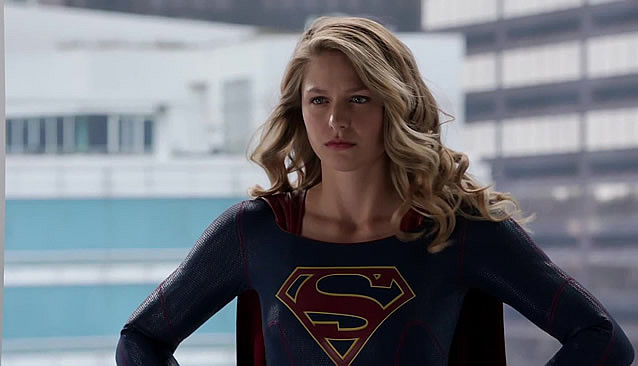
But that was in the early 1960s. We're in 2019. TV is filled with shows doing social commentary. Newscasters do social commentary. Political shows, and fictional news shows, and crime shows, and sitcoms, and pretty much every show. To take one example, S01E08, "Point of Origin", does commentary and allegory about illegal immigration. That's nice, but we've just had a whole season of Supergirl doing commentary and allegory about illegal immigration.
Not only does the new TZ do the same social consciousness storytelling as a lot of other shows, but it talks about the same things with the same general opinion. That's unavoidable to some degree: society issues are society issues. But Twilight Zone doesn't have anything new to add. And given it's limited to a single hour-episode per issue, by necessity it's going to be less complete then, say, a season of Supergirl.
To again take "Point of Origin", the overall message is illegal immigration is okay and people who believe the opposite are not just wrong, but in many cases evil and villainous. That's what they represent on Supergirl, too. You can argue the merits and disadvantages of illegal immigration, but the writers for the two shows aren't interested in that. 90%+ of it sounds the same, and it's kind of boring.
Look at the show summary: "The reimagined series brings the original show's legacy of socially conscious storytelling to modern day audiences, exploring the human condition and holding a lens up to the culture of our times." My emphasis. Looking at the "culture of our times" means the show will not date very well. Twenty years from now, how many people will care about the culture of 2019? One of the virtues of the original TZ is that it's timeless. Looking at the "culture of our times" may mean something to people in those times. But it's by definition not "timeless" is, it?
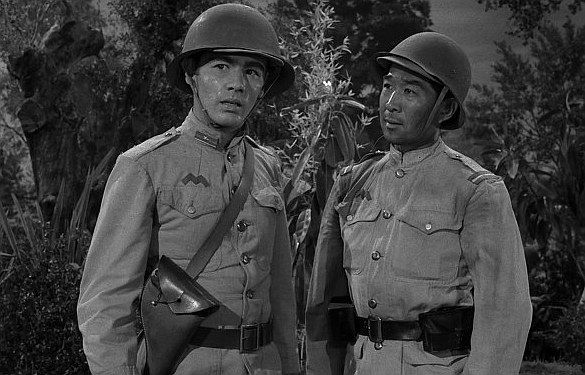
Granted, some of Serling's material has dated. There are stories about street vendors and suited gangsters and department stores. But those were backdrops: they didn't "look at" the culture of the 60s. "A Quality of Mercy" and "The Purple Testament" use the backdrop of World War II. But they don't look at the culture of World War II: they're just settings to look at war and the soldiers in it.
For another, see above as far as "socially conscious storytelling". Serling was not big on "socially conscious storytelling". He did it, yes, and for the early 1960s the relatively few times he did it were unique. He was more concerned about the "storytelling" part than the "socially conscious" part.
Also, there has been lots of "socially conscious storytelling" not just in the decade that followed, but in the 50+ years since. Watch late-night detective shows on retro channels, stuff like Mannix and Cannon. Or Star Trek. Those shows are filled with "socially conscious storytelling".
Maybe in the reviews to come I make too much of the "socially conscious storytelling". But then again, Jordan Peele and CBS have sold the show as having socially conscious storytelling. A lot of reviewers talk about how Serling in the 60s was big on "socially conscious storytelling". If they're going to make a big deal about the "social conscious storytelling", then I'm going to review it as such.
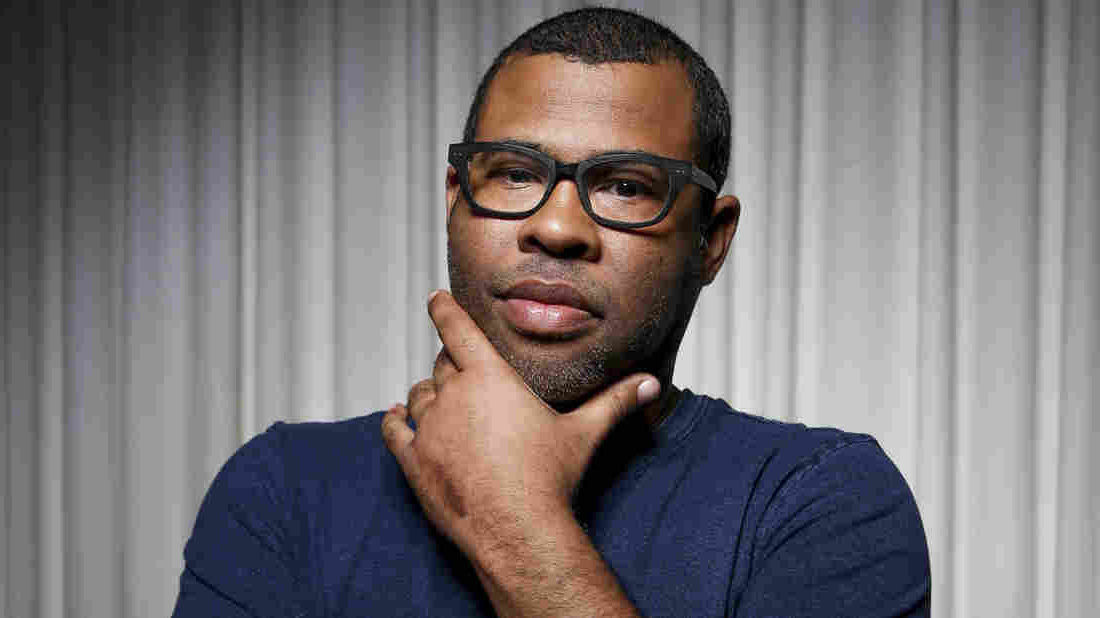
4) Jorden Peele is no Rod Serling. Heck, he's not even Charlie Brooker from Black Mirror. Yes, Peele has done two movies that were Serling-like. But he wrote those. He hasn't written any episodes of the new Twilight Zone. He's an executive producer and a developer, and no doubt he had a lot of input into the show. But that doesn't mean they're his stories.
And in fairness, in his later life, Rod Serling was no Rod Serling. Watch Night Gallery: not just the stories where the network dictated what would happen. But even Serling-written episodes. There are sparks of the Twilight Zone Serling in some classic Night Gallery episodes, but there are also a lot of turkeys.
Also, on Twilight Zone, Serling was mostly... a humanist. He believed in the human condition, and humans getting second chances. Good people get second chances, evil people get it in the neck. Yes, sometimes people got nailed due to the cruel vagaries of fate. The best example is "Time Enough at Last". Henry Bemis is a schmuck who doesn't deserve to be trapped alone in a world where he can't read. But he's presented as a likeable human being who gets a fate he doesn't deserve. It's presented as a tragedy.
And a lot of no-goods get their just desserts. "Death's-Head Revisited" and "Judgment Night" come to mind.
Many of the characters in the new Twilight Zone are treated as cruel playthings of a pitiless and remorseless Fate that likes making them suffer just to make a point. The one exception is "Replay", which succeeds mostly because it makes the main character likeable and... human. The implication at the end is Nina still has to suffer the loss of her son. But the final fate of her son becomes more tragic because we sympathize with her. It's hard to sympathize with the characters in episodes like "The Comedian" or "Nightmare at 30,000 Feet" and "The Wunderkind".
And since Peele's name is on the show and he narrates, he comes across as rather pitiless and remorseless. He has the basic tone of Serling, but since the stories are more mean-spirited, Peele comes across as more mean-spirited.
But what about the four episodes? Let's take a look at them.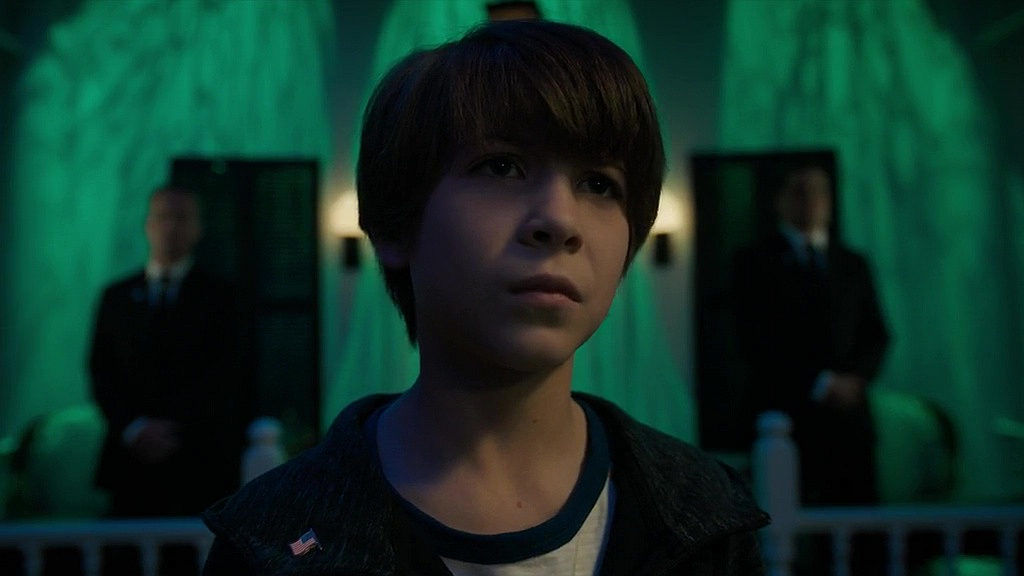 "The Wunderkind": Oddly enough, this one has an unbelievable premise. That sounds odd to say about a show like Twilight Zone, but typically the show starts with a fantasy or sci-fi concept and runs with it. "The Wunderkind" has no such concept. It features a loophole we the audience are presumably supposed to believe, but it never comes across as believable. And then it heaps more unbelievability on that. An 11-year-old, Oliver (Jacob Tremblay), becomes President. Oliver somehow totally changes the nature of medical treatment in the U.S., and then everyone goes along with it.
"The Wunderkind": Oddly enough, this one has an unbelievable premise. That sounds odd to say about a show like Twilight Zone, but typically the show starts with a fantasy or sci-fi concept and runs with it. "The Wunderkind" has no such concept. It features a loophole we the audience are presumably supposed to believe, but it never comes across as believable. And then it heaps more unbelievability on that. An 11-year-old, Oliver (Jacob Tremblay), becomes President. Oliver somehow totally changes the nature of medical treatment in the U.S., and then everyone goes along with it.
The premise? A political manager figures out a way to get Oliver elected President of the U.S.! Oliver's mother is supposedly the candidate but everyone knows its the kid they're voting for and will run the show. That's almost workable. But then almost everyone becomes a mindless drone, obeying Oliver without question. Oliver's parents go along with everything he says. The military goes along with everything he says. The Secret Service go along with everything he says. Hospitals go along with everything he says. The manager (John Cho), is the only one who seems to oppose Oliver, and he ends up hoisted on his own petard at the end.
Peele tries to make it "socially conscious" at the end by saying people should avoid the razzle dazzle of politics. But first of all, the kid isn't that razzly dazzly. For another, both sides in real life do a lot of razzle dazzle. The show is superficially politically neutral: Oliver appears to be an independent.
Another thing: nobody opposes Oliver. In the political environment of 2019, how likely does that seem? A lot of people oppose Trump. Here we're supposed to believe because Oliver has a cute face, a dying dog, and a dance video, no one will oppose him.
It doesn't help when they turn Oliver into evil. Yes, there's a "It's a Good Life" vibe with Oliver being handed absolute power and doing what most 11-year-olds would do with it. But the absolute power of psychokinesis or whatever Anthony has in "It's a Good Life" is not the absolute power of the Presidency, because the U.S. President doesn't have absolute power.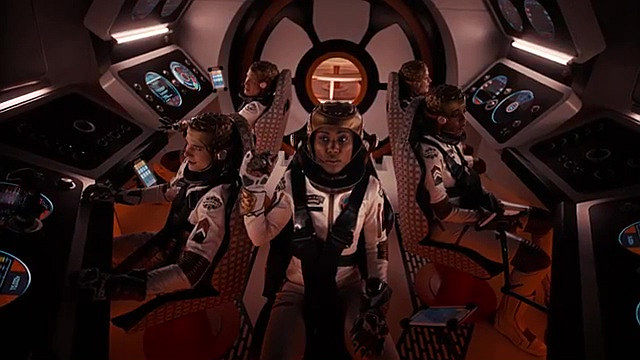 "Six Degrees of Freedom": a manned expedition to Mars is launching when Earth is apparently destroyed. They resolve to go onto Mars both because they have nothing to go back to, and to make an impact on behalf of Earth's civilization. It's a very dreary trip, livened up when one of the crew goes psychotic and decides they're in a simulation. And then blows himself out an airlock while trying to "prove" they're not really in space.
"Six Degrees of Freedom": a manned expedition to Mars is launching when Earth is apparently destroyed. They resolve to go onto Mars both because they have nothing to go back to, and to make an impact on behalf of Earth's civilization. It's a very dreary trip, livened up when one of the crew goes psychotic and decides they're in a simulation. And then blows himself out an airlock while trying to "prove" they're not really in space.
When the ship gets to Mars, they land and we find out some alien civilization rescued the psycho and (somehow) saved Earth because the crew have proven humans are worth saving by reaching out to the stars.
It's an okay episode but there isn't much there. And there are a lot of unexplained plot points. How do the aliens "save" Earth? And why do the crew lose communication with Earth? Did the aliens block the signals? Why did the aliens rescue the psycho, who basically killed himself? Was it real or was it a simulation as the psycho claims? If it was real, why the discrepancies he found showing it wasn't real?
The story basically ends with the aliens showing up, saying humanity has proven itself worthy of survival, and then helping it survive. And then the story ends, just about at the point where it's getting interesting.
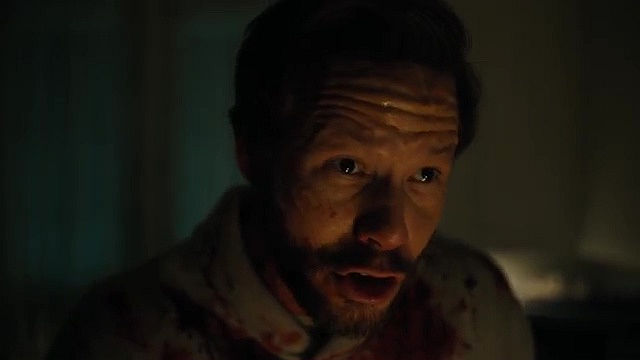
"Not All Men" has meteorites crashing to Earth near a small town. Most of the men in the area start acting violently. A coworker hits on the main character, Annie (Taissa Farmiga). Another coworker follows Annie and her sister home, and the sister's husband beats him to death and then attacks the women. Annie's nephew Cody fends off his homosexual classmate when the latter goes berserk.
At the end we find out the meteorites are harmless, but men used them as an excuse to go berserk. There are a few men who don't go berserk, like Cody and Annie's boss. But the basic moral of the story is Men Are Bad. Or at least just waiting for an excuse to turn violent, sadistic, and prey on women.
As with "Six Degrees", there's a few things that aren't explained. The "outbreak" of men going berserk seems to spread surprisingly fast without explanation and in the same manner. 95% of the men act exactly the same way. There's also a lot of strange behavior that isn't explained. The men start drinking meteorite shots, and there's a scene where they dance in an outside fountain for no particular reason.
While "Not All Men" isn't a #MeToo commentary per se, it has many of the same sentiments. Most men aren't to be trusted, and will attack women as soon as a reason--real or imagined--presents itself. Like "Six Degrees", it just ends. Granted, a lot of the original Twilight Zone episodes just ended as well. But a lot of endings ('lot" = eight episode so far) fall flat. Like they've delivered their social commentary, said what they had to say, and that's the end of the story. There's not a natural end of story, like in an original TZ episode like "Perchance to Dream" or "The Hitch-Hiker". We find out the main characters are dead, their story ends, and that's the end of the story.
In the case of "Not All Men", what are the ramifications of men being allowed to be savages? Not all of them are dead, so there must be some fallout. How do they live with themselves? How do they live with the people they terrorized? Will the government find a "cure"? How widespread was the "plague"?
Along with the black and white of "men bad" and "women good", the episode attempts a couple of shades of gray. The nephew, Cody (Percy Hynes White) is homosexual and doesn't fall victim to the plague. His friend? lover? whatever. falls prey to the same plague-like non-plague. Annie's boss is also seemingly immune, but gets killed for his immunity.
"Not All Men" is also a good example of how the show is/isn't "socially conscious storytelling". If the episode isn't trying to say something about the nature of men in 2019, and the #MeToo movement, then... what's the point? The episode's message then boils down to "men bad/women good". If it's not trying to tell a socially conscious story, then there's even less there.
"Point of Origin" is a social commentary on immigrants. The word "immigrants" is used repeatedly, and even "caravan" is tossed out there. A upper middle-class housewife Eve (Ginnifer Goodwin) has an ideal married life, complete with an immigrant housekeeper. She doesn't seem to have any political beliefs or stances, or at least none are stated. One suspects conservatives would think she was liberal, and liberals would think she's conservative.
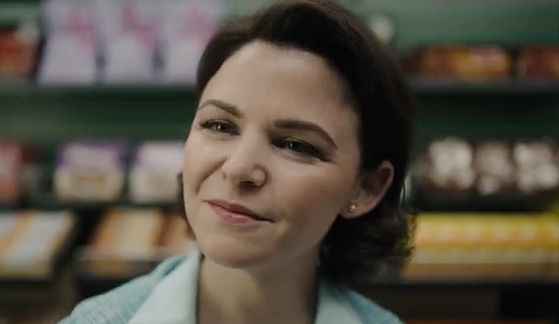
Eve's life falls apart when the government has her arrested and it's eventually revealed Eve is an immigrant from another dimension where civilization was dying. Apparently Eve's memory was wiped by the older members of her dimension, and she was sent to our dimension as a child. Somehow they created a complete background for her--don't ask how--but even though she's apparently been on Earth for 30 years and has no memory of being an immigrant, she doesn't know about things like single-slot parking, and giving money to homeless people, and shopping reward cards. Or chip readers on credit cards, which have just popped up in the last couple of years.
The woman is tossed into a holding facility (read "prison") with a bunch of other dimensional immigrants. Including her housekeeper, who is not only from Guatemala but from another dimension. Eve escapes with the aid of a greedy janitor (Michael Eklund) who hails from her dimension, goes back home, but her husband William turns her in and Eve is hauled away. For some reason ice cream is a theme of the episode, as the episode starts with an ice cream truck, Eve escapes in such a truck, and various people (including Jordan Peele at the end) are seen eating ice cream. Which is weird given it's winter, but oh well.
It's odd, but the pro-immigration message is both so boldly stated it can't be missed, but at the same time is so muddled it's hard to follow. The housekeeper, Anna, is both a dimensional immigrant and is also a Guatemalan immigrant. As always, questions about like... why didn't the dimensional immigrants present themselves as refugees? Word to the wise: if you infiltrate a society without seeking permission, said society isn't going to be too fond of you.
Also, is the anti-dimensional immigration policy new or old? It's not clear if the episode's stance is a socially conscious commentary on the current political climate, or about immigration in the last 30 years (the period we're told the dimensional immigrants arrived in this dimension) under multiple administrations. Most likely, the creative team didn't want to look at anything beyond the current administration.
All of the government officials are white, and James Frain as the head agent, Allendale, is ominous and evil. That's the boldly stated part.
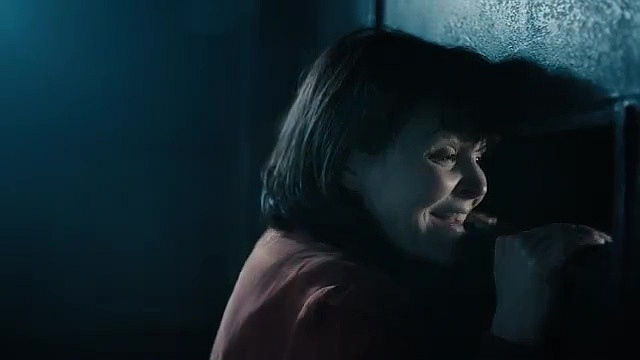
"Point of Origin" works well enough as a Kafkaesque tale of an innocent caught up in gears of government bureaucracy and "guilty unless proven innocent". As a pro-immigration screed, not so much. The episode relies on a few too many contrivances--Eve doesn't know she's an immigrant, the government has to be all evil and suspend due process to capture, hold, and detect immigrants--for the message to be very clear. "Point of Origin" uses a sci-fi gimmick or two to get the story told, but in this case. the gimmicks interfere with the apparent message. And if there is no message, then what's the point?
The story is somewhat similar to the original TZ's "A Quality of Mercy", and the movie segment with Vic Morrow, where a person finds themselves on the opposite side of the prejudices they harbor. But "A Quality of Mercy" redeemed the main character. It taught him a lesson and he lived to learn from it. In the case of the movie, and in "Point of Origin", the main character learns too late and is hauled away.
Reversing the prejudices is rather awkwardly done here. Anna berates Eve for not expecting to be put in a holding facility for immigrants. Then a minute later she's all sympathetic and "We're fellow immigrants from another dimension so I'll help you."
"Point of Origin" also doesn't create a likeable character with Goodwin's Eve. As an innocent accused of crimes she has no memory of and even if she did, someone else did them to her so that she would survive, Eve has a certain amount of good will from the audience going in. But she's a cold harsh woman who only feels sympathy for other immigrants because... well, she actually doesn't. She's concerned about herself. So when Eve gets hauled away at the end, it's less about an innocent being imprisoned, and more about a lousy person getting their just desserts. Serling would have made her either a sympathetic or quirky character, or both. Or at least avoided making her unlikable. The creative team here fails to do any of that.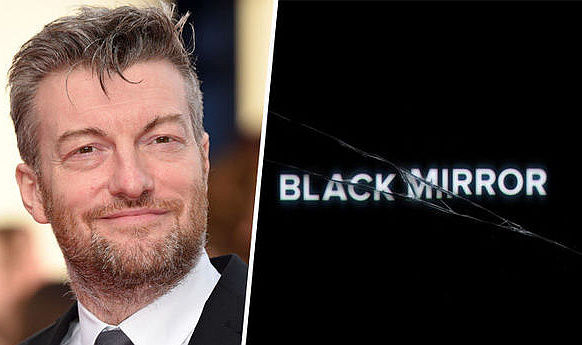 It's what I meant earlier about Charlie Brooker being a better Rod Serling with Black Mirror than Jorden Peele is with Serling's The Twilight Zone. Brooker (who writes many of the Black Mirror episodes himself) fleshes out sympathetic and/or interesting characters. Beyond being caught up in a brutal bureaucracy due to forces beyond her control, there's nothing sympathetic or interesting about Eve.
It's what I meant earlier about Charlie Brooker being a better Rod Serling with Black Mirror than Jorden Peele is with Serling's The Twilight Zone. Brooker (who writes many of the Black Mirror episodes himself) fleshes out sympathetic and/or interesting characters. Beyond being caught up in a brutal bureaucracy due to forces beyond her control, there's nothing sympathetic or interesting about Eve.
So far, the nu-Twilight Zone has done a lot of "socially conscious storytelling", but the characters come across more as representatives of the Issue of the Week, rather than having interesting storytelling. Lots of social consciousness, not so much storytelling.
But that's just my opinion, I could be wrong. What do you think?
Written by Gislef on May 18, 2019




We get social commentary online 24 hours a day 7 days a week already. Trying to do it with a reimagin-ing of a classic show just won't work and for most of us. We just give a collective groan and avoid these types of shows like the plague.
"But the absolute power of psychokinesis or whatever Anthony has in 'It's a Good Life' is not the absolute power of the Presidency, because the U.S. President doesn't have absolute power."
You might want to rethink that. While it's theoretically true, it seems like the current President a) acts like an 11 year old a lot of the time, and b) while he doesn't have absolute power, he's still able to obstruct justice, impose capricious tariffs, rip up treaties, and encourage horrible behavior in his cult-like followers - and the people who should be opposing him - the press, Congress - seem too afraid of backlash from those same cult-like followers to do their jobs.
Other similarities: 1) Both candidacies started as a joke, but with the help of smart political operatives, the "joke" candidates got elected, and now we're living with the consequences. 2) Once elected, those "smart" political operatives - who presumably could have tempered the 11 year old's worst impulses - where tossed aside at the first signs of disagreement, leaving the 11 year old surrounded by yes-men. 3) Both candidates are completely OK with lying to manipulate voters, or otherwise achieve their objectives - an immigration "crisis", a dog with cancer, an aid with a gun. 4) Is demanding that all doctors be children any more ridiculous than some of the actual "policy" tweets sent out by the real President?
The only difference between the 11 year old in the story and the 72 year old in the White House is how far those enabling them have allowed them to take their childish behavior. And remember, the real President still has between one and a half and five and a half years left. Who knows how far things will go by then? While the similarities with "It's a Good Life" were pretty obvious, my biggest complaint about this episode - and the new Twilight Zone in general - was how blunt and obvious the central metaphor was. How big a hammer do they need to make their point?